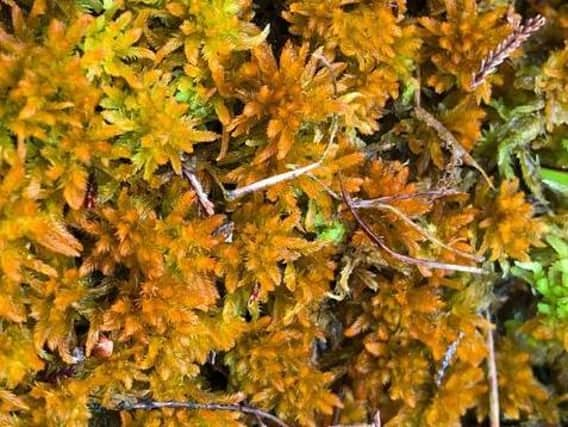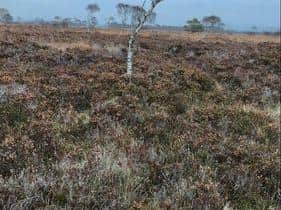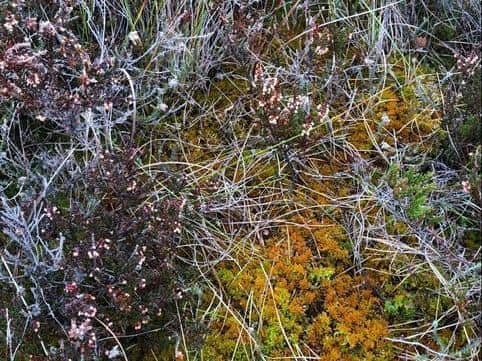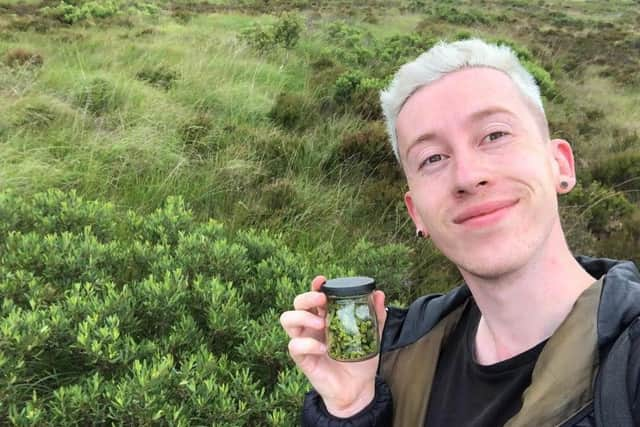Golden discovery on Lancashire moss


The discovery of a rare Golden bog moss has been hailed as a triumph for the charity's restoration work at Winmarleigh Moss, near Garstang.
Experts say it is the first time in more than century that the moss, Sphagnum pulchrum, has been seen on the Wyre site.
Advertisement
Hide AdAdvertisement
Hide AdIts name comes from its golden colour which creates an eyecatchingly bright display amongst other green and brown peatland mosses and plants.


A Trust spokesperson explained: "Golden bog moss (Sphagnum pulchrum) is a nationally scarce type of peat-forming sphagnum moss. With only one other recorded sighting in Lancashire, this new discovery has caused great excitement amongst peatland and nature lovers alike."
Winmaleigh Moss, is a rarity in its own right - a Site of Special Scientific Interest, it is one of the region's remaining lowland raised peat bogs.
The Trust has been working to restore the sites and says the discovery, by botanist Josh Styles of the North West Rare Plant Initiative, "is a great sign that things are moving in the right direction."
Advertisement
Hide AdAdvertisement
Hide AdJosh said: “Golden bog moss was last recorded at Winmarleigh in 1890. And so needless to say, I was


left gobsmacked to have stumbled upon a patch at Winmarleigh well over a century since it was last
seen there.”
As the Golden bog moss doesn’t produce capsules in the UK, which is how it would spread from site to site
in other areas, it is deemed likely that a small amount must have hung on for all that time at Winmarleigh


Moss, with conditions now right for it to flourish.
Advertisement
Hide AdAdvertisement
Hide AdJosh works to help to reintroduce rare or missing plants to the Trust's peatland sites, including ensuring the return of the lesser bladderwort to Astley Moss in Greater Manchester.
Sphagnum mosses have special importance because they play a key part in the ecosystem creating the peat which forms the peatland landscapes.
A healthy peat bog will host different species of sphagnum moss, which form a carpet amongst other plants such as cotton grasses and heathers.
The Trust spokesperson added: "In the water-logged, acidic conditions of peatlands, as the bottom layers of sphagnum moss die they decompose incredibly slowly forming layers of peat, but this only happens at about 1mm per year. Once a good plant cover is established at a peatland, then insects and other animals will follow."
Advertisement
Hide AdAdvertisement
Hide AdWinmarleigh Moss is cited as a great example of this, as it is home to one of the few remaining populations of large heath butterflies in the north west region. These brown butterflies were used as the donor population for the successful reintroduction of the species to Astley Moss this summer, after a 150 year absence.
* To learn more about Winmarleigh Moss see www.lancswt.org.uk/nature-reserves/winmarleigh-cockerham-
moss
* The Wildlife Trust for Lancashire, Manchester and North Merseyside serves Lancashire, seven boroughs in Greater Manchester and four in Merseyside. It manages some 60 nature reserves covering acres of woodland,
wetland, upland and meadow.
** The Lancashire Post is more reliant than ever on you taking out a digital subscription to support our journalism. For unlimited access to Lancashire news and information online, you can subscribe here: https://www.lep.co.uk/subscriptions